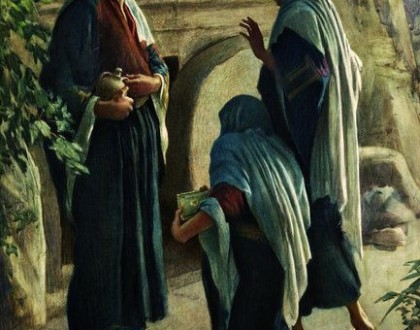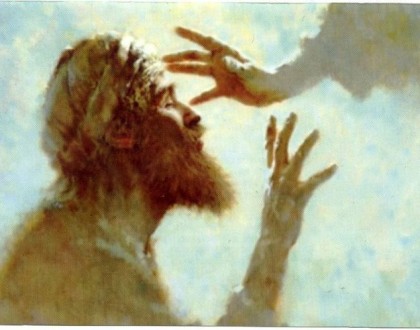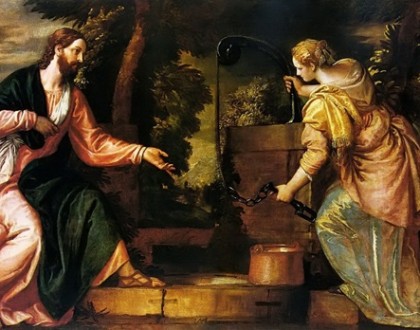24th Sunday Ordinary Time Year B – The Prodigal Son

The Prodigal Son
24th Sunday in Ordinary Time – Year B
This weeks Gospel, taken from Chapter 15 in Saint Luke, speaks to us of God`s unconditional, uncalculating, illogical and disproportionate love.
We rarely experience unconditional love on this side of heaven, so it is difficult for us to fathom that God could love little old me, as I am, warts and all. But that`s the Good News.
God loves us not because we are good, God loves because God is good.
A lot of Catholics believe with relative ease the different articles of our faith, be it the Trinity, the Incarnation, the Redemption, but that I am loved as I am is probably the most difficult to believe, God couldn’t be that good, could He?
Pope Francis in this year of Mercy has laid down the challenge to us, that the greatest thing we will ever do is to accept being forgiven and to embrace God’s loving mercy upon us.
God does not need our moral excellence. Nor is God diminished by moral depravity. All of creation could disappear and God would not be diminished. He makes the sun shine on the good and bad alike. We on the other hand project our feelings on to God. So we are warm and gentle towards the good people and harsh and judgmental towards those who hurt us. And so we assume that God must be that way…but its not that way with God, Thank God!
Chapter 15 in Luke speaks to us of the lost sheep, lost coin and the lost son. In each case we have something, we lose it, we rediscover it and then there’s a party!
Notice how we have to lose something often before we realise what we really have. Joy is the conscious possession of a good says Aristotle.
Life’s difficulties if we leave them do their work; bring us to a higher state of consciousness and so to a higher degree of joy and happiness.
What these three parables have in common is that they underline that Gods love will blow your mind; our logical and calculative minds cannot grasp the folly of His mercy.
The last parable is that of the prodigal son. The greatest story ever told as sometimes it has been known. We have heard it a 1000 times and yet we are still drawn to its life-giving message. This parable speaks for itself.
In the Middle-Eastern cultural environment of that time, when asking for his inheritance while a father was still alive, a son was basically telling him he wished he were dead, it was one of the most insulting acts a human could do. Then he has the gall to leave and spend his father’s money foolishly. What would you say if you were advising that father?
Notice the references to self, 3 times, “give me”, “my” share, “coming to me”.
The heritage God is giving us, his life and his love cannot be possessed only lived and it’s only in giving it away that we really “have” it.
He goes to a “distant country” in Greek; “choran makran” which literally means a “big empty space”. He wanders off into the big emptiness. There are echoes of Adam and Eve wandering off from the Garden of Eden to a desert place.
The famine he experiences there is not just a weather report but a spiritual symbol. No food, no water, no life….
We have all been there and maybe we are going through that land right now. Many of us traverse the Choran Macran and spiritually it is a time of famine.
To be taking care of pigs is for the Jews of the 1st century the lowest possible rung of the social ladder, to have hit rock bottom. He has followed his addiction all the way to this desperate end.
In the AA 12 step programme, to have hit rock bottom is where many came to their senses. It’s a place of awakening and realising “I am totally lost”. Which is a great moment in the spiritual life.
All of a sudden he see’s his relationship with his father in it’s true light, a life giving and loving one.
We see that the father was waiting and watching.
His father doesn’t run after him into the Choran macran, he lets him make his mistakes and feel the effects of sin, to learn it’s hard lesson.
The Old man throws caution to the wind and runs, that is God running to embrace us.
What does the father do? …. like a mad-man he waits and waits for his son to return, and when he does he;
1) sees him from afar
2) is moved with pity (the word used means his “bowels were moved” meaning a powerful deep emotion),
3) runs down the road,
4) embraces his son (literally “he jumps around his neck”, more like a football tackle!)….
Like the crazy shepherd and the goofy lady in the earlier parables, he throws all dignity and caution to the wind and rushes to embrace his son.
He gets a little bit of his prepared speech out.
This is “confession”. First there is contrition and then there is confession.
God wants us to express this and listens as we do, not because he is mean and wants us to bask in our own humiliation but that it is good for the soul to confess. “Lord I know I have sinned and… I want to tell you all about it”.
The Father cuts short his speech and invites everyone to celebrate.
The ring is a wedding symbol. Christ is the Bride Groom and we are the Bride. The Father is re-establishing covenant relationship (which is what confession does by the way).
The Elder Son represents many of us Christians who have been in the fold all our lives but cannot enjoy God’s presence and mercy because we have lost our relationship with the Father and are too busy being resentful of others. We are at the Fathers house but not “in” it.
I “slaved for you…” that is a giveaway. He didn’t receive the father’s gifts and then return them joyfully. He was physically close to the Father but didn’t get any of the father’s life. “I no longer call you slaves but friends…”
God invites us to bask in the reckless abandon of His love, a love (unlike human love) that is not dependent on its object to love. God loves us because He’s God, despite our brokenness, our cracks. Knowledge of this brings true joy and liberating celebration to our lives.

Recent Sermons

Easter Sunday – The Resurrection
April 14, 2017

4th Sunday of Lent Year A – The Man Born Blind
March 27, 2017

3rd Sunday of Lent Year A – The Samaritan Woman at the Well
March 20, 2017

